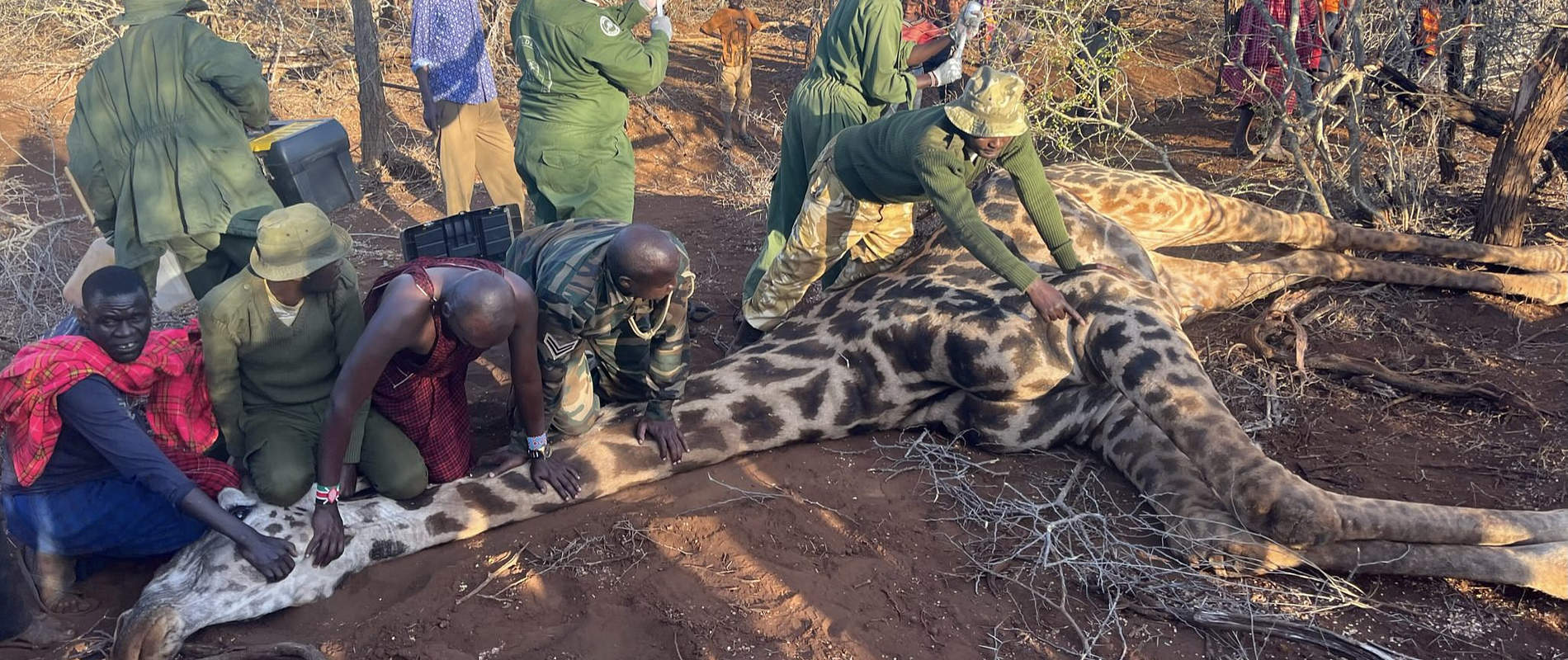This weekend, a tandem veterinary treatment by our SWT/KWS Tsavo Mobile Vet Unit saved two lives: earth’s largest animal and earth's tallest animal.
It began, as so many successful operations do, with a routine patrol. The SWT/KWS Canine Unit was tracking through the Tsavo Triangle when they spotted a bull elephant with a strand of fence wire wrapped around his back leg.

They alerted our Kaluku Operations Room and a treatment was organised. The SWT helicopter took flight with KWS veterinarian Dr Limo, who darted the patient from the air. Despite his compromised condition, the elephant was feisty, which always bodes well — it’s a good sign when the animal is full of fight. As the anaesthetic took hold, the aircraft guided ground teams to his location.

The fencing had wrapped tightly around the leg, creating a snare-like wound. While the injury was grievous, the SWT/KWS Tsavo Mobile Vet Unit reached him before irreversible damage was done.

As they were busy removing the wire and cleaning out the wound, the team received another call: Maasai Wilderness Conservation Trust rangers had spotted a giraffe with a spear wound to his front knee. With their first treatment complete, the team packed up and flew directly to Kuku Ranch. They had to move quickly: The hour was getting late, and they were losing light fast.

Again, the patient was darted from the air — but this time, there was no vehicle on-site. Instead, the helicopter guided ground teams, who came in on foot. The challenging conditions were exacerbated by the challenging patient. Given their unique anatomy, giraffes are notoriously complex to treat. They cannot be put under completely, as oxygen delivery to the brain would be lethally low, and the neck must be positioned just so to prevent airway obstruction.

Much like the previous patient, this was a large, feisty male. The ground team really had their work cut out for them, as they manually held him down under mild sedation. Fortunately, the wound was treatable.

Both patients have been given a good prognosis, but Dr Limo noted that both would have died without veterinary intervention. Donor support allows us to answer the call across Kenya, providing a lifeline to nature's giants.
